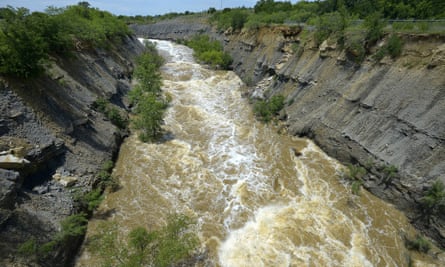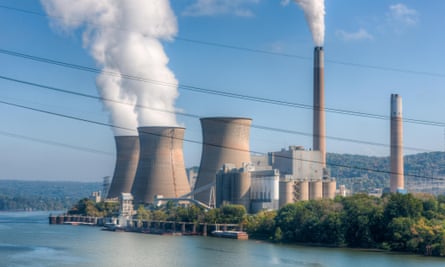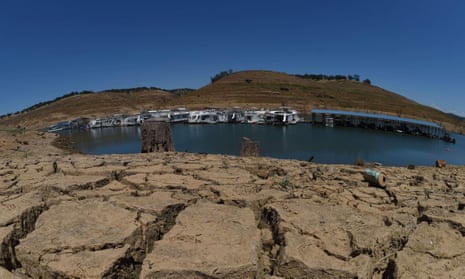Do Americans hold the core ideals of private property so high that they would be willing to give up on the idea of clean, drinkable water?
It depends on whom you speak to.
Following the Obama administration’s “clean water rule,” which was introduced last week and seeks to protect around 60% of American water bodies from pollution, it seems many Republicans are taking that very bet.
Certain tweets, comments and press releases suggest Republican presidential hopefuls have made water the latest issue in a campaign to denounce government overreach, setting up good old H20 to play a role in the 2016 elections.
Just a few hours after the EPA and the US Army Corps of Engineers introduced the clean water rule on 27 May, Jeb Bush – brother of George W Bush and a strong contender (if still unannounced) for the Republican nomination – tweeted his rejection of it.
“I want clean water but Obama Admin again oversteps with flawed reg on waters that hurts farmers & small business. #DitchTheRule,” Bush wrote.
The next day, governor Scott Walker of Wisconsin, another strong, likely-but-not-yet-announced Republican presidential candidate, released a statement framing the clean water rule as economically and ethically unsound: a form of Washington power grab affecting individual Americans’ private lives and businesses.
My statement on the latest @BarackObama EPA power grab: http://t.co/Nt8t0Uc4Ew - SKW
— Scott Walker (@ScottWalker) May 28, 2015
“Just the latest version of the Obama administration’s costly and burdensome overreach into Americans’ livelihoods,” he wrote. “Washington’s inefficient, heavy-handed regulations are wreaking havoc on working families across the nation, from stifling small business growth to strangling the agriculture industry.”
In an op-ed in the Hill earlier this year, co-written with Oklahoma attorney general Scott Pruitt, Republican presidential candidate and Kentucky senator Rand Paul described the rule, then in its proposal stage, as the “greatest blow to private property rights the modern era has seen”.
“Virtually every property owner in the nation will now be subject to the unpredictable, unsound and often Byzantine regulatory regimes of the EPA,” they wrote.
The Obama administration has argued that the rule does nothing new, and that it seeks to clarify the scope of the 1972 Clean Water Act, which was designed to stop the discharging of toxic and non-toxic pollutants into America’s navigable bodies of water.
But in the last 15 years, two separate supreme court rulings have raised questions about whether small streams and wetlands – which are connected to larger navigable waters, but not large and navigable themselves – should be included in the act’s legislative and regulatory reach.
The clean water rule explicitly makes sure that they are, with the argument that smaller bodies of water that feed into larger ones provide drinking water to one in three Americans.
Streams and even some ditches – so long as they are considered tributaries that connect to larger bodies of water downstream– are considered “water of the United States” (also known as #WOTUS), and subject to regulation.

Democrats from states where the farm and energy industries represent large sections of the local economy have also spoken out against the rule and even signed initiatives to try to dismantle it.
Senator Heidi Heitkamp, a Democrat from North Dakota, where the number one industry is agriculture, wrote in a statement that farmers and ranchers from her state see the rule as a cause for concern every time she speaks to them. The lack of adequate consultation by the EPA had led to “prairie potholes” – temporary wetlands – being regulated as part of the claimed waters of the United States, she said.
At the end of April, Heitkamp introduced bipartisan legislation in the Senate to re-write the rule, with the backing of other Democratic senators, including Senator Joe Manchin from West Virginia, which produces around 15% of America’s fossil fuel energy, according to the region’s department of commerce.
Not all environmental groups are happy with the rule, either. Brett Hartl, endangered species policy director with the Center for Biological Diversity, called the rule a win for big industry and Republicans, not Democrats, precisely because of the increased exemptions introduced to cater to critics.
“Without the full protection of the Clean Water Act, critical wetland habitats across the country will be degraded or destroyed, undermining the recovery of dozens of endangered species,” Hartl wrote in a statement.
The fact that there were efforts to weaken the rule further was a sign of emboldened Republicans and industry supporters, not of dissatisfaction, Hartl said in an interview.
“They are trying to see how much more they can get,” he said.
Mostly, the rule concerns large industries, with exemptions remaining and indeed expanding for farmers, ranchers and foresters, EPA officials have repeatedly stressed.
Unsurprisingly, the farming, manufacturing, oil and gas, and housing development industries have all been vocal in their opposition to the rule.
Gina McCarthy, who heads the EPA, said in a press call last week that her agency had found that 80% of small business owners supported the rule, as did a majority of those individuals and organizations who submitted public comments in the run-up to the rule’s introduction.
Whether or not the EPA’s own surveys can be trusted, the move by Republicans to denounce water regulation and pitch it as the enemy of the foundational American ideal of private property might not be a slam-dunk for the American right – even among their core supporters.

Anthony Leiserowitz, a research scientist at Yale University who directs the Yale Project on Climate Change Communication, says that Americans consistently place water pollution at the top of the list of environmental issues they are concerned about, with his polling showing “overwhelming amounts of people” in support of government protection of water systems.
“It is an issue that is fundamental to people’s lives,” Leiserowitz says.
While convincing people that climate change is not a pressing issue for them is a feasible task, Leiserowitz says (“most people think it is far away in space and will affect polar bears”), water is much more difficult to brush to one side.
“It is what we drink every single day. We have a far more direct and visceral relationship with it,” he says.
With the ongoing drought in California, the recent killer flash floods in Texas and Oklahoma, and last year’s contaminated water incident that lead to freakishly green tap water in Toledo, Ohio, water will only become more crucial to people, Leiserowitz says.
Still, Republicans’ fiery rhetoric should not be underestimated when it comes to changing their own voters’ minds.
According to the Pew Research Center, the percentage of Republicans in favor of “stricter laws and regulations to protect the environment” was as high as 86% in 1992. By 2012, that had dropped to 47%, almost half of what it was two decades earlier.
For Heather Taylor-Miesle, director of the Natural Resource Defense Council Action Fund, which supported the rule, the biggest hurdle is making sure public debate centers around facts, not ideologies.
“Any time that the public has a meaningful conversation about the environment, we win.”

Comments (…)
Sign in or create your Guardian account to join the discussion